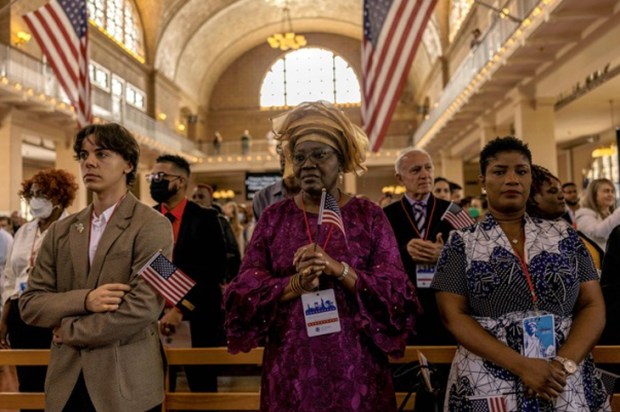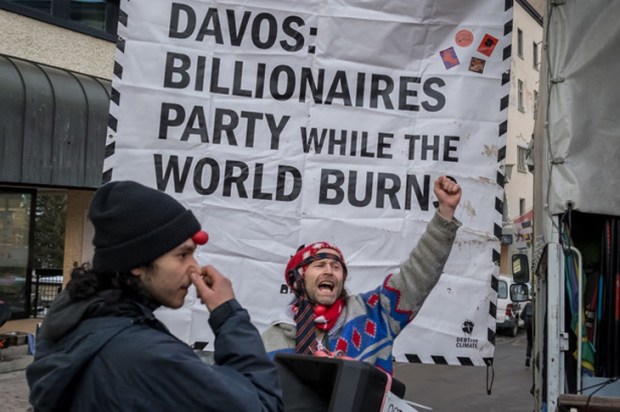Import the third world, become the third world, goes a popular meme. Especially when pathologies of large-scale legal and illegal immigration are compounded by the arrivals mistreating the host country as a hotel and not their new home. Their immediate financial contribution is often offset by the additional demands and strain on public services and infrastructure. Official figures show that low-paid migrants to the UK will cost £151,000 net by age 66, rising to £500,000 for 80-year-olds. Undocumented migrants can access the overstretched NHS A&E in just 15 minutes compared to 12-hour waiting times for patients in queue. Similarly, asylum seekers will cost the Netherlands €400,000 each over their lifetimes. In both countries, migrants from industrialised countries are net contributors but not those from the third world. The equivalent Australian statistics (thanks, Graham Young) from a 2021 Treasury report show the net lifetime fiscal benefit of skilled migrants is $198,000/capita, but that of family and humanitarian migrants is minus $126,000 and $400,000, respectively.
Immigrants often bring inherited hatreds and conflicts which caused them to flee their homelands in the first place, creating major problems for their adopted countries whose values they neither understand nor respect. In Canada, the conservative Harper government courted the Tamil diaspora rather than back Sri Lanka’s efforts to eradicate Tamil Tiger terrorism. Trudeau has damaged relations with India by pandering to Sikh extremists. For sixteen months often violent antisemitic protests have roiled the streets of several Western countries. Many centre-left political parties have tried to appease angry Muslim voters by walking back their previously firm support of Israel’s right to defend itself after the worst pogrom since its establishment as the homeland of Jews. The electoral impact of immigration numbers and demographic trends in last year’s election with the rise of the Gaza war as a voting issue, could profoundly reshape the nature of British politics and foreign policy, including its role as a permanent member of the UN Security Council. The divisions of the distant Gaza conflict have also reverberated in Australian politics. The UK gives a foretaste of how far down the road of overtly religious politics we risk going by refusing to confront the ugliness and its policy implications.
In a poll in late 2023, most Canadians rejected Trudeau’s mantra of ‘diversity is strength’. Diversity can create fresh security headaches and also lead to disintegration if existing bonds of cohesion dissolve. Mass inflows of people from diverse cultures with radically differing belief systems, values, and rights can destroy an integrated and harmonious community. There’s also an erosion of cultural cohesion and social stability with migrants from low-trust and civic virtue countries. South Asian-style governance corruption might have infected British politics. Tulip Siddiq, Starmer’s anti-corruption minister no less, lived in and rented out a string of flats gifted to her family by a political ally of her aunt, the since-deposed prime minister of Bangladesh. She has resigned as a minister but remains an MP.
Statistics pass the pub test of a link between a surge in mostly young male migrants from misogynist subcultures and rising sex crimes. Foreign-born residents are 3.5 times more likely than British-born residents to be arrested for sexual offences. For all crimes, the four worst-offending countries of origin in the crime league table (Albania, Afghanistan, Iraq, Algeria) but only one of the dozen least-offending (Jordan) is Muslim majority. India is the third lowest. A new study shows 63 per cent of rape and attempted rape convictions in Sweden are of first or second-generation migrants. Are comparable statistics collected in Australia?
On 3 December 2015, Ann Coulter tweeted her law of mass shootings: ‘The longer we go without being told the race of the shooters, the less likely it is to be white men.’ By now this has its own entry in some online dictionaries. As discussed in my article last week, UK authorities had diligently obeyed this law in obfuscating the identity of the organised rape gangs of mostly Pakistani-heritage Muslim men that operated in dozens of British towns for several decades, preying particularly on vulnerable poor white girls. Determined to disguise the precise identity of the paedophile gangs, a BBC report of 5 February 2015 described the Rotherham rapists as ‘five men from the town’s Asian community’. When Keir Starmer again resorted to the lazy misinformation of ‘an Asian grooming gang’ at a press conference on 6 January, British Indians reacted with fury. Sikh Youth UK has spent 15 years supporting Sikh victims of the rape gangs. An angry spokesman fumed that ‘Sikhs, Hindus, and others incorrectly labelled ‘Asian’ are sick and tired of politicians, including Keir Starmer, referring to ‘Asian grooming gangs’ for reasons of political correctness’. The Hindu Council UK has joined the call for a public national inquiry.
Is it permissible to note parallels with what the marauding monsters from Gaza did in southern Israel on 7 October 2023? And with the denialism of those who have been screaming and chanting themselves hoarse on the streets, celebrating that day’s atrocities as liberating acts of resistance?
The policy concern is not immigration in itself, but the age, skill sets, earning capacity, and country of origin of migrants. European parties hostile to undifferentiated immigration have started moving away from the fringes into the public square. Far from reining in her defeated leadership rival Robert Jenrick for his call for a limit on immigration from ‘alien cultures’ with ‘medieval attitudes to women’, Tory leader Kemi Badenoch has backed him. This is not surprising from someone who wrote in September that only the naïve would believe that immigrants ‘automatically abandon ancestral ethnic hostilities at the border’ and ‘all cultures are equally valid. They are not’. Hopefully, this will break the taboo on an open policy debate on the topic. My concern is and always has been that if people who express legitimate anxieties are shamed into silence, the backlash will hit all of us, not just those responsible for the pathologies associated with large-scale migration. The solution is to abandon non-selective and embrace targeted immigration tailored to maximising lifetime economic benefits and minimising social harms based on hard data, not racial or religious prejudice. For example, an Australian version of the Musk-led efficiency drive would get rid of the requirement that all public agencies, from federal down to local councils, must publish their documents in multiple languages. Just assist immigrants to learn English and help them to integrate. Human rights and migration conventions, no longer fit for purpose for addressing current realities, are weaponised in the service of lawfare that paralyses governments’ ability to make and enforce laws to address legitimate concerns. They too need urgent updating or abandonment. Surely this exigent task is not beyond human ingenuity.
Got something to add? Join the discussion and comment below.
You might disagree with half of it, but you’ll enjoy reading all of it. Try your first month for free, then just $2 a week for the remainder of your first year.













